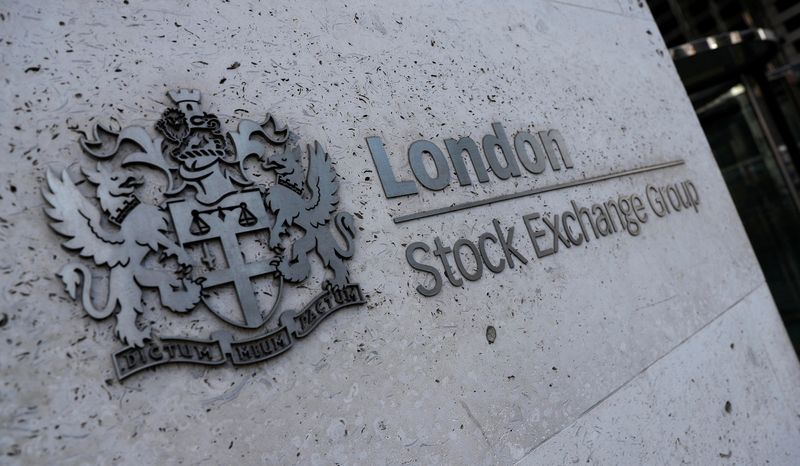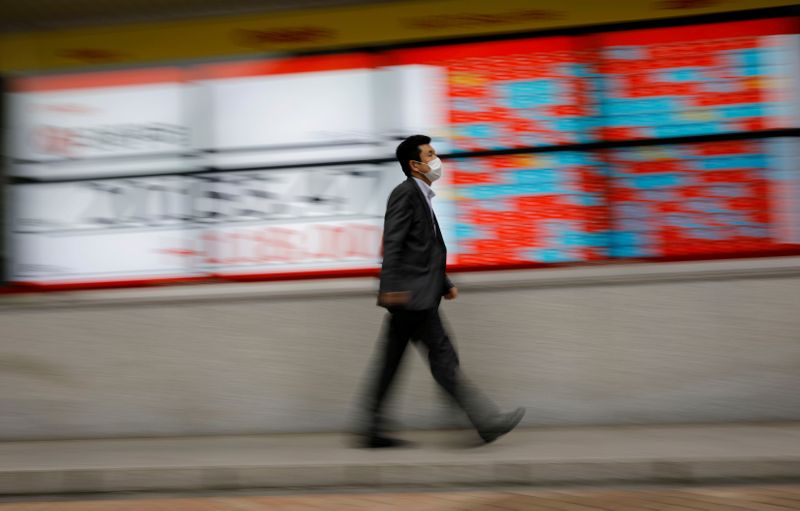By Marc Jones
LONDON (Reuters) - World stocks and risk currencies rallied on Tuesday on encouraging global economic data and assurances from U.S. President Donald Trump that the U.S.-China trade deal remained "fully intact" after confusion over its fate had emerged.
Jitters had struck Asian markets after White House adviser Peter Navarro said the trade deal with China was over, linking the breakdown in part to anger over Beijing not sounding the alarm earlier about the coronavirus outbreak.
The headlines prompted a brisk selloff but sentiment quickly recovered when Navarro, an outspoken critic of China, said his remarks had been taken out of context. Trump later confirmed in a tweet the deal was fully in place.
Europe's main equity markets then extended the bounce, climbing between 1.3-2.6% after Purchasing Managers' Indexes (PMIs), seen as a good gauge of economic health, thumped expectations to bolster V-shaped recovery hopes.
Euro zone PMIs recovered to 47.5 from May's 31.9 and April's record low of 13.6. The future output index, which had been below the 50 mark that separates growth from contraction for three months, recovered to 55.7 from 46.8 too.
Banks (SX7P), carmakers (SXAP) and the tech sector (SX8P) led the share market gains (EU), Wall Street futures were up (N) the euro got back above $1.13 (EUR=) and Italy's government debt benefitted in the bond markets.
"PMIs are coming in much better than expected and are another bullish arrow pushing markets back to the highs of May," said CMC Markets senior analyst Michael Hewson.
"The bar for second lockdowns is going to be a lot higher as well, so a second wave (of COVID-19 infections) is not going to be nearly as damaging economically as the first wave."
OIL ON THE BOIL
Hong Kong's Hang Seng (HSI) had ended up 1.6% after Asia's early trade deal wobbles, South Korea's KOSPI index (KS11) added 0.2% and Japan's Nikkei (N225) climbed 0.5%.
World stocks (MIWD00000PUS) have rallied nearly 40% since hitting four-year lows in March amid worries about the jolt to the global economy from the coronavirus-driven shutdown.
Ord Minnett investment advisor John Milroy said equity market sentiment was positive despite ongoing bursts of volatility across regional markets.
"It's worth noting our clients here have been net buyers since the depths of market despair," Milroy told Reuters from Sydney.
"I should think any pullback would be a catalyst for that pattern to resume, the conversations that I am having with clients is all about what to buy not what to sell."
Gold, which initially rose on Navarro's remarks, eased back after the clarification while risk-sensitive currencies staged a recovery aided by a softer U.S. dollar.
The Australian dollar was 0.6% higher as U.S. trading neared having fallen as much as 0.7%, while emerging market heavyweights from Russia's rouble
"The saving grace for markets is liquidity, which is in abundance and will offer a backstop as the bulls and bears stage a tussle and cause market volatility," said Vasu Menon, Singapore-based senior investment strategist at OCBC Bank Wealth Management.
Despite Trump's assurances on Tuesday, Menon expects U.S.-China tensions to escalate in the run-up to the U.S. elections.
"So expect markets to be very bumpy in second half of this year because of the double whammy from COVID-19 and U.S.-China tensions."
China on Tuesday reported 22 new coronavirus cases, of which 13 were located in Beijing, and the city's government has started to restrict people from moving to help contain the outbreak.
New infections have spiked in Latin America, Brazil in particular, while New York City, the epicentre of the U.S. outbreak, eased restrictions after 100 days of lockdown.

In commodities, oil continued its recovery. Brent (LCOc1) was up 30 cents at a more than three-month high of $43.33, while U.S. crude (CLc1) was up above $41 a barrel.
